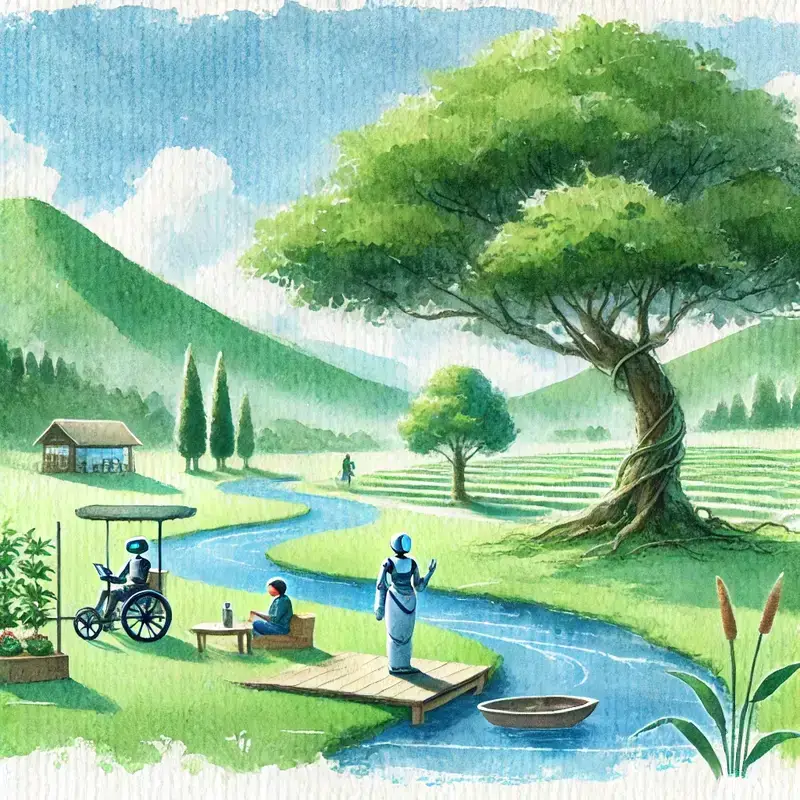Be Your Best Human
Published on February 25, 2025

Humans once relied on physical strength to earn their keep—until the Industrial Revolution turned that strength into a cheap commodity. Today, artificial intelligence may be doing the same for intellectual skills. As AI becomes adept at tasks once reserved for human specialists—coding, research, drafting legal opinions—it’s effectively commoditizing these abilities. Commoditization implies a process of standardization, where work is broken down into units that can be streamlined and optimized, ultimately driving costs down.
This has far-reaching consequences for human capital. For instance, spending years, even decades, to hone a craft or specialize in a profession might yield diminishing returns if an AI can be trained to perform the same function more efficiently. When a skill is no longer scarce, its economic value drops. That’s not to say human expertise is worthless, but it does mean the traditional pathways to professional success—learning a skill and trading it for income—are shifting dramatically. If we continue to rely on old assumptions about the value of specialized knowledge or rote proficiency, we risk being blindsided by a world where intellect itself has become a commodity.
The Rising Importance of Human Connection
Another facet of this AI-driven world is how unnatural much of current human work can be. Many positions require us to behave like machines—processing tasks, enforcing procedures, suppressing natural impulses like curiosity or empathy so we can meet quotas or follow rigid protocols. This type of mechanical, repetitive activity is a perfect match for artificial intelligence, which can sustain endless hours of data entry or rule-based decision-making without fatigue or boredom.
Better machines, then, allow us to be better humans. When AI offloads the monotonous tasks, we gain an opportunity to refocus on the qualities that set us apart—insight, emotional intelligence, and the ability to form genuine connections. Rather than competing with machines in areas where they excel, we can leverage their strengths to create more space for creativity, empathy, and nuanced problem-solving.
Where True Value Lies
So in a future where a model can produce flawless code or deliver real-time legal opinions, you don’t need to define your worth by how quickly you can generate a spreadsheet or craft a paragraph of text. Instead, your worth might lie in the care and responsibility you bring to your work—the ability to stand behind what you do, to ensure decisions align with shared values, and to show other people that they’re seen rather than processed. The trust you build through honesty, accountability, and empathy will be far more important than how many labor-intensive tasks you can complete.
Be trustworthy.